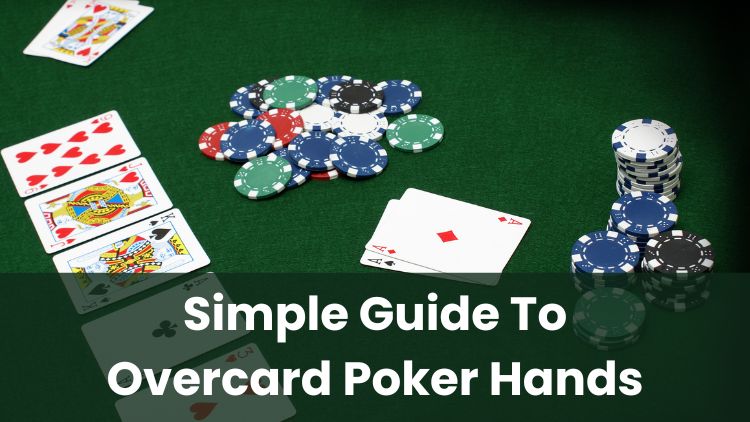
Poker can take a bit of learning, especially when it comes to understanding the different types of hands you might come across. One situation you may face is known as an “overcard” hand. Many new players come across this term and wonder what it means during a game.
Read on to learn exactly what overcards are, when they might matter most, and how you can approach them during play.
Spotting an Overcard in a Hand
An overcard usually refers to a card that is higher in rank than other cards in a given context. In community card games like Texas Hold’em, an overcard can either be on the board or in your hand.
For example, if you’re holding 8 of hearts and 9 of clubs, and a queen appears on the flop, the queen is an overcard to your hand. It ranks above both of your cards. On the other hand, if your hand is ace and king, and the board shows 9, 6, and 2, then your hole cards are overcards to the flop.
Cards in poker are ranked from 2 (the lowest) through to ace (the highest). Any card that is ranked above another in a given situation may be referred to as an overcard.
Most platforms licensed by the UK Gambling Commission (UKGC) include full game rules. These often explain how cards are ranked and how hands are built.
Typical Overcard Scenarios in Poker
Recognising Overcards on the Flop
In Texas Hold’em, the flop is the point where the first three community cards are placed face up. These cards can be compared with your hole cards to assess possible outcomes. If a community card is higher than either of your hole cards, it's known as an overcard in that hand context.
Take an example where you’ve been dealt two eights. If the flop shows queen, five, and two, the queen is an overcard. It's higher than your pair and could indicate that another player has a stronger holding.
Seeing one or two overcards on the flop is a common situation, especially if your hand starts with a small or mid-range pair. As wild cards are not typically used in regulated UK poker games, high-value cards such as ace, king, or queen are often the most relevant.
In online formats, some operators offer visual tools that can assist with hand recognition. Not every platform does this. It might be worth checking how the specific interface works before making decisions involving real money stakes.
Odds of Getting an Overcard
In a game using the standard 52-card deck, the chance of overcards appearing on the flop varies depending on your starting hand. If you start with a low or medium pair, it’s relatively likely that at least one of the community cards will be higher.
For instance, if you’re holding a pair of sixes, 50 cards remain unseen after you’ve been dealt your hand. Of those, 32 are ranked seven or higher, making them potential overcards. Based on standard calculations, the likelihood that none of the flop cards are higher than your pair is around 22% to 25%.
These probabilities can shift depending on which cards have been folded or dealt to others. Positions at the table may also influence how players act when overcards are present.
Some poker platforms provide basic hand evaluation tools. These vary by provider, so check what's available before using any features during gameplay.
Your Questions Answered About Overcards
What is an overcard in poker?
An overcard is a card ranked higher than another in play. This could be a community card higher than your hole cards or a hole card that ranks above the flop. It’s a common concept in Texas Hold’em and other variants that use shared community cards.
Can overcards affect your chances of winning?
If an overcard appears on the board, it may mean that other players have formed a stronger hand. Recognising this could help you decide whether to continue in the hand or take a different approach.
Are overcards the same in all poker games?
Most standard poker variants in the UK follow the same card ranking structure. The concept of overcards generally applies in any game where your private cards are compared to shared cards on the table.
Do online poker sites highlight overcards?
Some online poker platforms include visual aids to identify overcards or show relative hand strength. This is not standard on every site, so it’s helpful to explore the layout of the platform you choose to play on.
Is spotting an overcard difficult for beginners?
It involves checking whether any community cards are higher than your own. With regular play, it tends to become easier to notice and interpret these situations as they arise.
Always remember to gamble responsibly and within your means- never wager more than you can afford to lose.
**The information provided in this blog is intended for educational purposes and should not be construed as betting advice or a guarantee of success. Always gamble responsibly.
*All values (Bet Levels, Maximum Wins etc.) mentioned in relation to these games are subject to change at any time. Game features mentioned may not be available in some jurisdictions.
